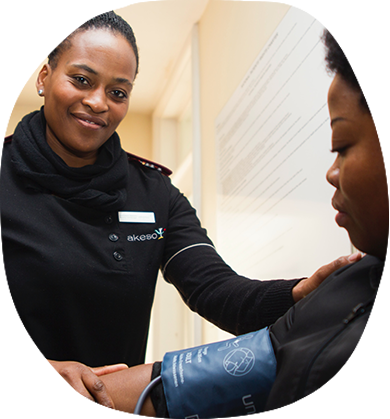REACH Provides Counseling and Therapy for Bipolar Disorder
Living with bipolar disorder can be scary. The lows of depression are often debilitating, and the highs of mania can lead to impulsive and damaging behaviors. Bipolar disorder is one of the top ten most debilitating noncommunicable diseases in the world, and can severely disrupt your life if left untreated.

Symptoms of Bipolar Disorder
Most people know that bipolar disorder involves “mood swings,” but this disorder is about far more than just being moody. Bipolar mood swings aren’t about being grumpy or emotionally fragile – they swing between two opposite “poles”: depression and mania.
Sometimes, a person with bipolar disorder gets depressed. Bipolar disorder is different from depression because it involves another type of mood: mania (or hypomania). Some people with bipolar only get one manic episode in their whole lives. Others are more likely to feel manic than depressed.
Symptoms of depression include:
- A sad mood
- Lack of energy
- Loss of interest in activities that you used to enjoy
- Feelings of hopelessness, worthlessness, or guilt
- Trouble concentrating
- Changes in sleep patterns (inability to sleep or sleeping too much)
Symptoms of a manic episode include:
- Feeling elated, “up,” or irritable and restless
- Having so much energy that you don’t feel the need to sleep
- Talking very fast and changing topics quickly
- Racing thoughts
- Lack of appetite
- Risky and impulsive behaviors, including reckless sex and spending a lot of money
- Having feelings of grandeur (feeling like you are unusually powerful or talented)
Bipolar Disorder Treatment
At REACH Behavioral Health, we have the clinical expertise to get you connected to the right diagnosis and treatment for bipolar disorder.
Research shows us that bipolar disorder is often misdiagnosed. Many medical providers don’t evaluate for a history of mania (people with bipolar are more likely to seek treatment when they’re depressed), leading them to mistakenly diagnose people with major depressive disorder instead.
Depression treatment and bipolar disorder treatment are very different. It’s critical that you get the right diagnosis so you can get the treatment that works for you.

Medication for Bipolar Disorder
We often recommend medication for people with bipolar disorder because they’re shown to be very effective. Some of the best medications for bipolar disorder include:
- Mood stabilizers like Lamictal, Depakote, and Lithium
- Off-label antipsychotics like Haldol, Risperdal, and Abilify
Sometimes, if your mania has been managed with mood-stabilizing medications, then you might be prescribed an antidepressant to help with depression symptoms. However, antidepressants can increase the risk of a manic episode for people with bipolar disorder.
This is why it’s so critical to get the right diagnosis – being treated for depression when you actually have bipolar disorder can make your symptoms worse.

Cognitive Behavioral Therapy for Bipolar Disorder
A type of psychotherapy called cognitive behavioral therapy (or CBT) is also helpful for people with bipolar disorder. Therapy is especially useful for combating the depressive symptoms of bipolar disorder.
CBT for bipolar disorder is based on the premise that our thoughts, feelings, and behaviors are connected. When you start feeling depressed or manic, CBT techniques can help you to identify irrational thoughts and challenge them with more helpful ones so that you start to feel better.
At REACH Behavioral Health, you can get all your mental health needs met under one roof. Whether you need medication or CBT for bipolar disorder, we can help.

Contact REACH for Therapy for Bipolar Disorder
Get in touch with us today to start a conversation about the best bipolar disorder treatment options for you. We look forward to speaking with you.

If you’re living with bipolar disorder, know that you’re not alone. Millions of Americans struggle with this disease every day.
With the right bipolar disorder treatment, you can recover from this disease and start living a happy, more balanced life. REACH Behavioral Health can help you get started with therapy for bipolar disorder and medication.
